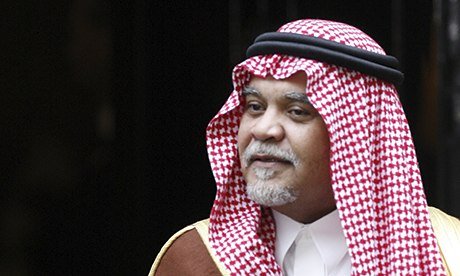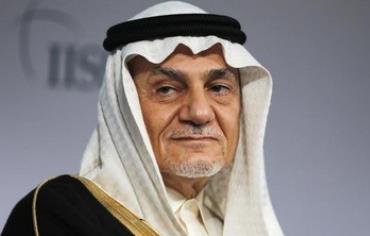Revolutions take time, so I see no reason to despair.
Recognizing the different phases they go through will clarify this:
The first phase, where the regime gets rid of its weakest link. Remember mubarak/Bin Ali.
The second, where the old regime launches a counter revolution using its deep roots.
This already happened in Egypt, and they -I'll explain later- are attempting to spread it to Tunisia & Libya. The apathy bred into the general populace after so many decades of corrupt and dictatorial rule will not evaporate overnight, so this almost always happens after the euphoria fades a bit. Many ordinary people find they are not prepared to pay the price of true revolution.
The third phase, where the revolution absorbs the hit & lives, or doesn't & dies. in the former case, it doesn't matter how many months or years it takes, the old regime always falls.
We're seeing this now in Egypt, where the people -MB and others- have realized that a militant response will end up creating another Syria, and that the counter revolution can only survive for so long under intense public pressure. This is the appropriate response, as butting heads with the military directly is a recipe for disaster.
After that, it depends on the revolutionaries & their resolve/ingenuity/etc. Personally I believe Egypt -the rest following soon after- will be free pretty soon.
As for the enemy, its shown itself quite openly after the coup in Egypt:
1. The fascist regimes of Syria, Egypt's deep state, and potentially Tunisia if the revolution falters there. I call them fascist since they prop themselves up on their political opposition's skulls. The reason for that being their lack of popular support except what's gained through ultra nationalist propaganda and the like.
2. Those who supported the coup.
The division of labor is also easy to see:
1. The fascists provide the manpower & their witches and charlatans-the so called intellectuals- talk day and night about democracy, women's rights, minority rights, etc to hide their ugly nature. Their attempts at creating and hyping a "terrorist" threat by killing as many demonstrators as possible have largely failed though. In Syria's case the regime's stupidity has hastened the day it completely falls.
2. Money from the supporters. The trouble other countries are going through -caused in no small part by the tribals themselves- and the population's overwhelming dependance on oil handouts seems to be keeping a lid on things. Bear in mind even Saudi Arabia has seen small demonstrations about local grievances lately. Bahrain would have been free by now if not for the intervention of its neighbors. Once the coup fails in Egypt there will be a major backlash across the Arab world; I expect even the royals will crack.
Behind the backward tribals and fascists stand foreign backers or former colonial masters whose interest it is to see the people of the region disunited. See for example the US's course of action in the Gulf and through Israel though it seems to be coming to terms with the necessity of including "Islamists" in the political process,
Russia's in the Levant and potentially Egypt as well through Iran,
and France's in the Maghrib. Seeing this is all well and good, but they can only do so much. Once change takes hold they'll have to deal with the new reality.
Its high time the people of the region, whether they be Arab, Berber, Turkish, Kurdish or any other ethnicity, took matters into their own hands.
That time is now.
Recognizing the different phases they go through will clarify this:
The first phase, where the regime gets rid of its weakest link. Remember mubarak/Bin Ali.
The second, where the old regime launches a counter revolution using its deep roots.
This already happened in Egypt, and they -I'll explain later- are attempting to spread it to Tunisia & Libya. The apathy bred into the general populace after so many decades of corrupt and dictatorial rule will not evaporate overnight, so this almost always happens after the euphoria fades a bit. Many ordinary people find they are not prepared to pay the price of true revolution.
The third phase, where the revolution absorbs the hit & lives, or doesn't & dies. in the former case, it doesn't matter how many months or years it takes, the old regime always falls.
We're seeing this now in Egypt, where the people -MB and others- have realized that a militant response will end up creating another Syria, and that the counter revolution can only survive for so long under intense public pressure. This is the appropriate response, as butting heads with the military directly is a recipe for disaster.
After that, it depends on the revolutionaries & their resolve/ingenuity/etc. Personally I believe Egypt -the rest following soon after- will be free pretty soon.
As for the enemy, its shown itself quite openly after the coup in Egypt:
1. The fascist regimes of Syria, Egypt's deep state, and potentially Tunisia if the revolution falters there. I call them fascist since they prop themselves up on their political opposition's skulls. The reason for that being their lack of popular support except what's gained through ultra nationalist propaganda and the like.
2. Those who supported the coup.
The division of labor is also easy to see:
1. The fascists provide the manpower & their witches and charlatans-the so called intellectuals- talk day and night about democracy, women's rights, minority rights, etc to hide their ugly nature. Their attempts at creating and hyping a "terrorist" threat by killing as many demonstrators as possible have largely failed though. In Syria's case the regime's stupidity has hastened the day it completely falls.
2. Money from the supporters. The trouble other countries are going through -caused in no small part by the tribals themselves- and the population's overwhelming dependance on oil handouts seems to be keeping a lid on things. Bear in mind even Saudi Arabia has seen small demonstrations about local grievances lately. Bahrain would have been free by now if not for the intervention of its neighbors. Once the coup fails in Egypt there will be a major backlash across the Arab world; I expect even the royals will crack.
Behind the backward tribals and fascists stand foreign backers or former colonial masters whose interest it is to see the people of the region disunited. See for example the US's course of action in the Gulf and through Israel though it seems to be coming to terms with the necessity of including "Islamists" in the political process,
Russia's in the Levant and potentially Egypt as well through Iran,
and France's in the Maghrib. Seeing this is all well and good, but they can only do so much. Once change takes hold they'll have to deal with the new reality.
Its high time the people of the region, whether they be Arab, Berber, Turkish, Kurdish or any other ethnicity, took matters into their own hands.
That time is now.
Last edited:


